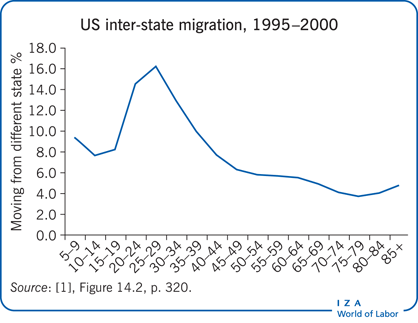Elevator pitch
Population aging will continue in the future, in both developed and developing countries. This may lead to lower migration, since the desire to migrate declines later in the life cycle. In addition, indirect labor demand effects may also reduce migration. However, migration of the elderly, return retirement migration, as well as mobility of certain specialist workers such as health and longer-term care providers, may increase. Also, in a family context, the emigration of children may have significant consequences for the elderly left behind, both in terms of poverty risk and health care.

Key findings
Pros
There might be an increase in migration and return migration at older ages and following retirement.
Older individuals move for economic as well as non-economic reasons.
With aging and improved health and health care, mobility of the elderly may increase.
Aging may lead to higher mobility of certain specialists, such as health and longer-term care workers.
In the context of the family, migrant children help to support elderly parents through remittances.
Cons
Aging may reduce migration as older people tend to migrate less than young.
Aging may lead to lower migration of workers of all ages as a result of lower labor demand for migrants.
By reducing migration, aging may have additional adverse effects for the labor markets and welfare.
Aging is also present in migrant-sending countries, where both facts exacerbate the negative effects.
The emigration of children may lead parents “left behind” to face higher poverty risk and a greater need for care.